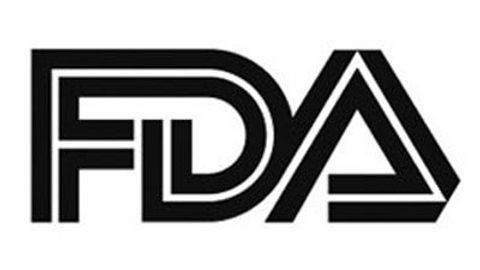FDA Halts Phase 1/2 Trial Evaluating NUV-422 in Solid Tumors
A partial clinical hold has been placed by the FDA on the phase 1/2 NUV-422-02 trial examining NUV-422 in solid tumors, including high grade glioma, hormone receptor–positive advanced breast cancer, and metastatic castration-resistant prostate cancer.

The FDA has placed a partial clinical hold on the phase 1/2 NUV-422-02 trial (NCT04541225) examining NUV-422, a selective small molecule CDK2/4/6 inhibitor, in solid tumors, including high grade glioma, hormone receptor–positive advanced breast cancer, and metastatic castration-resistant prostate cancer (mCRPC), according to Nuvation Bio Inc.1
The partial hold was placed due to certain patients having developed uveitis, a form of inflammation in the eye, after receiving a dose of NUV-422. Enrollment of new patients has been paused in order to further assess these adverse events with both investigators and uveitis experts as a response. Additionally, the company has reached out to the FDA for guidance around how to move forward.
With the partial hold in place, no new patients will be enrolled in the NUV-422 program. However, study participants previously enrolled may continue to be treated in the phase 1 study.
"We are committed to patient safety across all of our studies and to working collaboratively with the FDA to develop, as efficiently as possible, new medicines where existing therapies are inadequate,” stated David Hung, MD, founder, president and chief executive officer of Nuvation Bio Inc, in the press release. “Based upon the recent development of uveitis as a potential safety signal, we will conduct an overall risk/benefit analysis of the NUV-422 program. Our goal is always to ensure that we deploy our resources on programs that have the highest probability of success and of generating value for patients and our investors.”
In December 2020, the phase 1 trial began enrolling patients, and more recent months have explored higher doses of NUV-422 to define a maximum tolerated dose in these patients.
The first-in-human, open-label, phase 1/2 trial looks to examine the safety and efficacy of NUV-422 in adult patients with recurrent or refractory high-grade gliomas, metastatic breast cancer with and without brain metastases, and metastatic castration-resistant prostate cancer.
Eligibility for enrollment in all phases and cohorts of the study is open to patients who have recovered from toxicity to previous anticancer therapies, who are eligible to receive single-agent NUV-422, who have a life expectancy of greater than 3 months, and who have acceptable bone marrow and organ function.2
Study participants received oral NUV-422 which was self-administered in 28-day treatment cycles. Patients continued to receive treatment until progressive disease, toxicity, withdrawn consent, or study termination.
In the dose-escalation portion of the study, the primary end points included to determine the safety and tolerability of NUV-422 and identify the recommended phase 2 dose. The primary end point for the phase 1 surgical substudy of the was to evaluate the pharmacokinetic profile of the agent.
For the phase 2 dose-expansion portion of the trial, the primary end point of cohort 1 is to evaluate objective response rate (ORR) and duration of response (DOR) of NUV-422 in patients with IDH wild-type glioblastoma. For cohorts 2, 3, and 4 of the dose-expansion portion of the trial, primary end points also include evaluating ORR and DOR in patients with hormone receptor–positive, HER2-negative metastatic breast cancer, mCRPC, and hormone receptor–positive, HER2-negative metastatic breast cancer with brain metastases.
Other ongoing and prospective studies will examine the use of NUV-422 including in the NUV-422-03 trial (NCT05191004) of the agent in combination with fulvestrant (Faslodex) in patients with hormone receptor–positive, HER2-negative advanced breast cancer that have previously received a hormonal therapy combined with an approved CDK4/6 inhibitor, and in the NUV-422-04 trial (NCT05191017) examining NUV-422 combined with enzalutamide(Xtandi) in patients with mCRPC who previously received abiraterone acetate (Zytiga).
Updates regarding the direction of the NUV-422 program are expected by the company after the completion of an internal risk-benefit analysis, which will factor in feedback from FDA.
References
- Nuvation Bio announces FDA partial clinical hold for phase 1 study of NUV-422 in solid tumors. News release. Nuvation Bio, Inc. June 28, 2022. Accessed June 27, 2022. https://bit.ly/3OrBgxO
- Study of NUV-422 in adults with recurrent or refractory high-grade gliomas and solid tumors. ClinicalTrials.gov. Updated March 11, 2022. Accessed June 28, 2022. https://clinicaltrials.gov/ct2/show/NCT04541225